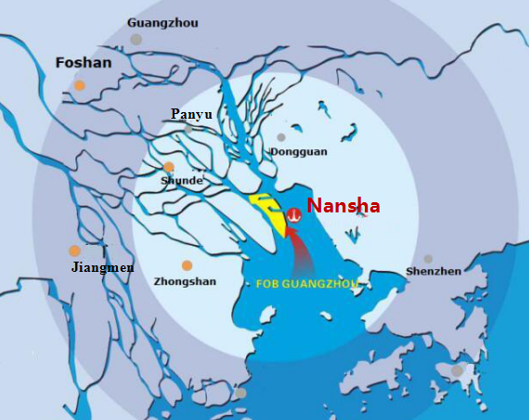Beijing focuses on total control of cross-border information flows. For this reason, the People's Republic of China, explains the MorningPost, will build a "free trade data port" in the Nansha district (in Guangzhou, Guangdong) by 2025. The facility will serve as a pilot project for the transfer of digital information between China and the rest of the world.
- Nansha's international free data exchange port will be the country's test project for cross-border data transfer
- The project is expected to play an important role in future data exchanges between China and the outside world amid stricter regulations.
Beijing's aim is to create a first bottleneck through which to retain sensitive data for its own national interest. Since 2017, the Chinese government has adopted three laws in this regard, respectively on cybersecurity, data security and the protection of personal information.
Nansha's pilot project (worth $5 billion) is expected to include a data center, an industrial park for big data and a communications laboratory for the so-called Enlarged Bay, which involves parts of Guangdong, Hong Kong and Macau. The digital port will connect to the overseas submarine cable network.
It is no coincidence that Beijing has chosen to set up such a structure in Guangzhou. In the southeastern part of the People's Republic are concentrated most of "its" tech giants, starting with Alibaba and Tencent.
In addition, Guangzhou is a few kilometers from Hong Kong which, despite the strong internal tensions, remains a privileged access point for foreign multinationals wishing to invest in China. And it is therefore a relevant theater for the technological competition between Beijing and Washington.



